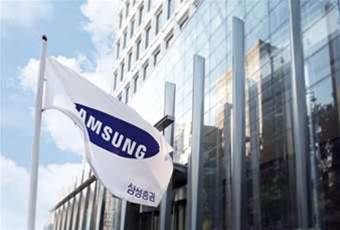Samsung said on Sunday it will launch an artificial intelligence digital assistant service for its upcoming Galaxy S8 smartphone, as it seeks to rebound from the Galaxy Note 7's combustion fiasco.

In October this year, the world's top smartphone maker announced the acquisition of Viv Labs, a firm run by a co-creator of Apple Siri voice assistant program.
Samsung plans to integrate the San Jose-based company's artificial intelligence platform called Viv, into the Galaxy smartphones and expand voice-assistant services to home appliances and wearable technology devices.
The electronics giant is putting its hopes into the upcoming Galaxy S8 to help revive smartphone momentum after scrapping the fire-prone Galaxy Note 7, which will hit its profit by U$5.4 billion (A$7 billion) over three quarters through to the first quarter of 2017.
Investors and analysts say the Galaxy S8 must be a strong device in order for Samsung to win back customers and revive earnings momentum.
Samsung did not comment on what types of services would be offered through the AI assistant that will be launched on the Galaxy S8. It is expected to go on sale early next year. Samsung said the AI assistant would allow customers to use third-party services seamlessly.
"Developers can attach and upload services to our agent," said Samsung executive vice president Rhee Injong during a briefing, referring to its AI assistant.
"Even if Samsung doesn't do anything on its own, the more services that get attached the smarter this agent will get, and learn more new services and provide them to end-users with ease."
Technology firms are locked in an increasingly heated race to make AI good enough to let consumers interact with their devices more naturally, especially by voice.
Alphabet's Google is widely considered to be the leader in AI, but others including Amazon, Apple and Microsoft have launched their own offerings including voice-powered digital assistants.
Samsung also hopes to differentiate its devices, from phones to fridges, by incorporating AI.
Competition from Google's new Pixel smartphones, armed with the firm's voice-powered digital assistant, adds to the urgency.
The South Korean firm has said it plans more acquisitions to bolster its AI and other software capabilities


_(20).jpg&h=140&w=231&c=1&s=0)
_(28).jpg&h=140&w=231&c=1&s=0)

_(23).jpg&h=140&w=231&c=1&s=0)





 iTnews Executive Retreat - Security Leaders Edition
iTnews Executive Retreat - Security Leaders Edition
 iTnews Benchmark Awards 2026
iTnews Benchmark Awards 2026
 iTnews Cloud Covered Breakfast Summit
iTnews Cloud Covered Breakfast Summit
 The 2026 iAwards
The 2026 iAwards











_(1).jpg&h=140&w=231&c=1&s=0)



